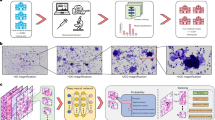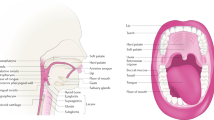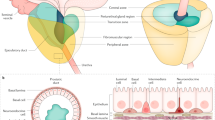Abstract
BACKGROUND:
The significance of lymphovascular invasion (LVI) remains controversial, and the association of LVI with biochemical relapse was investigated in men treated with radical prostatectomy according to pathological results.
METHODS:
Data from 1268 patients undergoing radical prostatectomy between 2000 and 2009 were retrospectively reviewed. Clinicopathological variables were compared between LVI-negative and LVI-positive patients. Multivariate analyses by Cox proportional hazard model and Kaplan-Meier method were performed to identify risk factors for biochemical relapse in all patients, patients with pT2N0 and pT2N0 negative resection margin (RM).
RESULTS:
LVI information was available in 1160 cases, and LVI was seen in 121 cases (10.4%). Clinicopathological variables were significantly worse in LVI-positive patients than in LVI-negative patients. On multivariate analyses, PSA⩾10 ng ml−1, pathological Gleason score ⩾8, pathological T stage ⩾3, lymph node metastasis, positive RM and LVI were independent predictors for biochemical relapse in all patients. In patients with pT2N0, PSA⩾10 ng ml−1, pathological Gleason score ⩾8, positive RM and LVI were independent predictors for biochemical relapse. In patients with pT2N0 negative RM, LVI and pathological Gleason score ⩾8 were independent predictors for biochemical relapse (LVI; hazard ratio 3.809, 95% confidence interval 1.900–7.635, P-value<0.001, Gleason score ⩾8; hazard ratio 2.189, 95% confidence interval 1.199–3.999, P-value=0.011). With a median follow-up of 50 months, 5-year biochemical relapse-free survival in patients with pT2N0 negative RM was 95.7% in those with negative LVI in comparison to 85.3% in those with positive LVI (P<0.001, log rank).
CONCLUSIONS:
LVI was consistently a significant predictor for biochemical relapse after radical prostatectomy in not only all patients but also in patients with pT2N0 and pT2N0 negative RM. These results strongly support the significance of LVI as a predictor for biochemical relapse.
This is a preview of subscription content, access via your institution
Access options
Subscribe to this journal
Receive 4 print issues and online access
$259.00 per year
only $64.75 per issue
Buy this article
- Purchase on Springer Link
- Instant access to full article PDF
Prices may be subject to local taxes which are calculated during checkout


Similar content being viewed by others
References
Tilki D, Shariat SF, Lotan Y, Rink M, Karakiewicz PI, Schoenberg MP et al. Lymphovascular invasion is independently associated with bladder cancer recurrence and survival in patients with final stage T1 disease and negative lymph nodes after radical cystectomy. BJU Int 2013; 111: 1215–1221.
Ku JH, Byun SS, Jeong H, Kwak C, Kim HH, Lee SE . Lymphovascular invasion as a prognostic factor in the upper urinary tract urothelial carcinoma: a systematic review and meta-analysis. Eur J Cancer 2013; 49: 2665–2680.
Gujam FJ, Going JJ, Edwards J, Mohammed ZM, McMillan DC . The role of lymphatic and blood vessel invasion in predicting survival and methods of detection in patients with primary operable breast cancer. Crit Rev Oncol Hematol 2014; 89: 231–241.
Higgins KA, Chino JP, Ready N, D'Amico TA, Berry MF, Sporn T et al. Lymphovascular invasion in non-small-cell lung cancer: implications for staging and adjuvant therapy. J Thorac Oncol 2012; 7: 1141–1147.
Ng J, Mahmud A, Bass B, Brundage M . Prognostic significance of lymphovascular invasion in radical prostatectomy specimens. BJU Int 2012; 110: 1507–1514.
Hashimoto Y, Okamoto A, Imai A, Yoneyama T, Hatakeyama S, Koie T et al. Biochemical outcome of small-volume or insignificant prostate cancer treated with radical prostatectomy in Japanese population. Int J Clin Oncol 2012; 17: 119–123.
Yee DS, Shariat SF, Lowrance WT, Maschino AC, Savage CJ, Cronin AM et al. Prognostic significance of lymphovascular invasion in radical prostatectomy specimens. BJU Int 2011; 108: 502–507.
Loeb S, Roehl KA, Yu X, Antenor JA, Han M, Gashti SN et al. Lymphovascular invasion in radical prostatectomy specimens: prediction of adverse pathologic features and biochemical progression. Urology 2006; 68: 99–103.
Ito K, Nakashima J, Mukai M, Asakura H, Ohigashi T, Saito S et al. Prognostic implication of microvascular invasion in biochemical failure in patients treated with radical prostatectomy. Urol Int 2003; 70: 297–302.
Yamamoto S, Kawakami S, Yonese J, Fujii Y, Ohkubo Y, Suyama T et al. Lymphovascular invasion is an independent predictor of prostate-specific antigen failure after radical prostatectomy in patients with pT3aN0 prostate cancer. Int J Urol 2008; 15: 895–899.
Shariat SF, Khoddami SM, Saboorian H, Koeneman KS, Sagalowsky AI, Cadeddu JA et al. Lymphovascular invasion is a pathological feature of biologically aggressive disease in patients treated with radical prostatectomy. J Urol 2004; 171: 1122–1127.
Stamey TA, Yemoto CM, McNeal JE, Sigal BM, Johnstone IM . Prostate cancer is highly predictable: a prognostic equation based on all morphological variables in radical prostatectomy specimens. J Urol 2000; 163: 1155–1160.
Cheng L, Jones TD, Lin H, Eble JN, Zeng G, Carr MD et al. Lymphovascular invasion is an independent prognostic factor in prostatic adenocarcinoma. J Urol 2005; 174: 2181–2185.
Herman CM, Wilcox GE, Kattan MW, Scardino PT, Wheeler TM . Lymphovascular invasion as a predictor of disease progression in prostate cancer. Am J Surg Pathol 2000; 24: 859–863.
May M, Kaufmann O, Hammermann F, Loy V, Siegsmund M . Prognostic impact of lymphovascular invasion in radical prostatectomy specimens. BJU Int 2007; 99: 539–544.
Thompson IM, Valicenti RK, Albertsen P, Davis BJ, Goldenberg SL, Hahn C et al. Adjuvant and salvage radiotherapy after prostatectomy: AUA/ASTRO guideline. J Urol 2013; 190: 441–449.
Wiegel T, Bottke D, Steiner U, Siegmann A, Golz R, Storkel S et al. Phase III postoperative adjuvant radiotherapy after radical prostatectomy compared with radical prostatectomy alone in pT3 prostate cancer with postoperative undetectable prostate-specific antigen: ARO 96-02/AUO AP 09/95. J Clin Oncol 2009; 27: 2924–2930.
Bolla M, van Poppel H, Collette L, van Cangh P, Vekemans K, Da Pozzo L et al. Postoperative radiotherapy after radical prostatectomy: a randomised controlled trial (EORTC trial 22911). Lancet 2005; 366: 572–578.
Thompson IM, Tangen CM, Paradelo J, Lucia MS, Miller G, Troyer D et al. Adjuvant radiotherapy for pathological T3N0M0 prostate cancer significantly reduces risk of metastases and improves survival: long-term followup of a randomized clinical trial. J Urol 2009; 181: 956–962.
Messing EM, Manola J, Yao J, Kiernan M, Crawford D, Wilding G et al. Immediate versus deferred androgen deprivation treatment in patients with node-positive prostate cancer after radical prostatectomy and pelvic lymphadenectomy. Lancet Oncol 2006; 7: 472–479.
European Association of Urology guidelines on prostate cancer 2014, available at http://www.uroweb.org/guidelines/online-guidelines/.
Mohler JL, Kantoff PW, Armstrong AJ, Bahnson RR, Cohen M, D'Amico AV et al. Prostate cancer, version 2.2014. J Natl Compr Canc Netw 2014; 12: 686–718.
Acknowledgements
This research received no specific grant from any funding agency in the public, commercial or not-for-profit sectors.
Author information
Authors and Affiliations
Corresponding author
Ethics declarations
Competing interests
The authors declare no conflicts of interest.
Rights and permissions
About this article
Cite this article
Mitsuzuka, K., Narita, S., Koie, T. et al. Lymphovascular invasion is significantly associated with biochemical relapse after radical prostatectomy even in patients with pT2N0 negative resection margin. Prostate Cancer Prostatic Dis 18, 25–30 (2015). https://doi.org/10.1038/pcan.2014.40
Received:
Revised:
Accepted:
Published:
Issue Date:
DOI: https://doi.org/10.1038/pcan.2014.40
This article is cited by
-
The significance of micro-lymphatic invasion and pathological Gleason score in prostate cancer patients with pathologically organ-confined disease and negative surgical margins after robot-assisted radical prostatectomy
International Journal of Clinical Oncology (2020)
-
Impact of the Proportion of Biopsy Positive Core in Predicting Biochemical Recurrence in Patients with Pathological Pt2 and Negative Resection Margin Status after Radical Prostatectomy
Pathology & Oncology Research (2020)
-
The value of multimodality imaging in the investigation of a PSA recurrence after radical prostatectomy in the Irish hospital setting
Irish Journal of Medical Science (1971 -) (2018)
-
Impact of lymphovascular invasion on lymph node metastasis for patients undergoing radical prostatectomy with negative resection margin
BMC Cancer (2017)
-
Is lymphovascular invasion a powerful predictor for biochemical recurrence in pT3 N0 prostate cancer? Results from the K-CaP database
Scientific Reports (2016)



